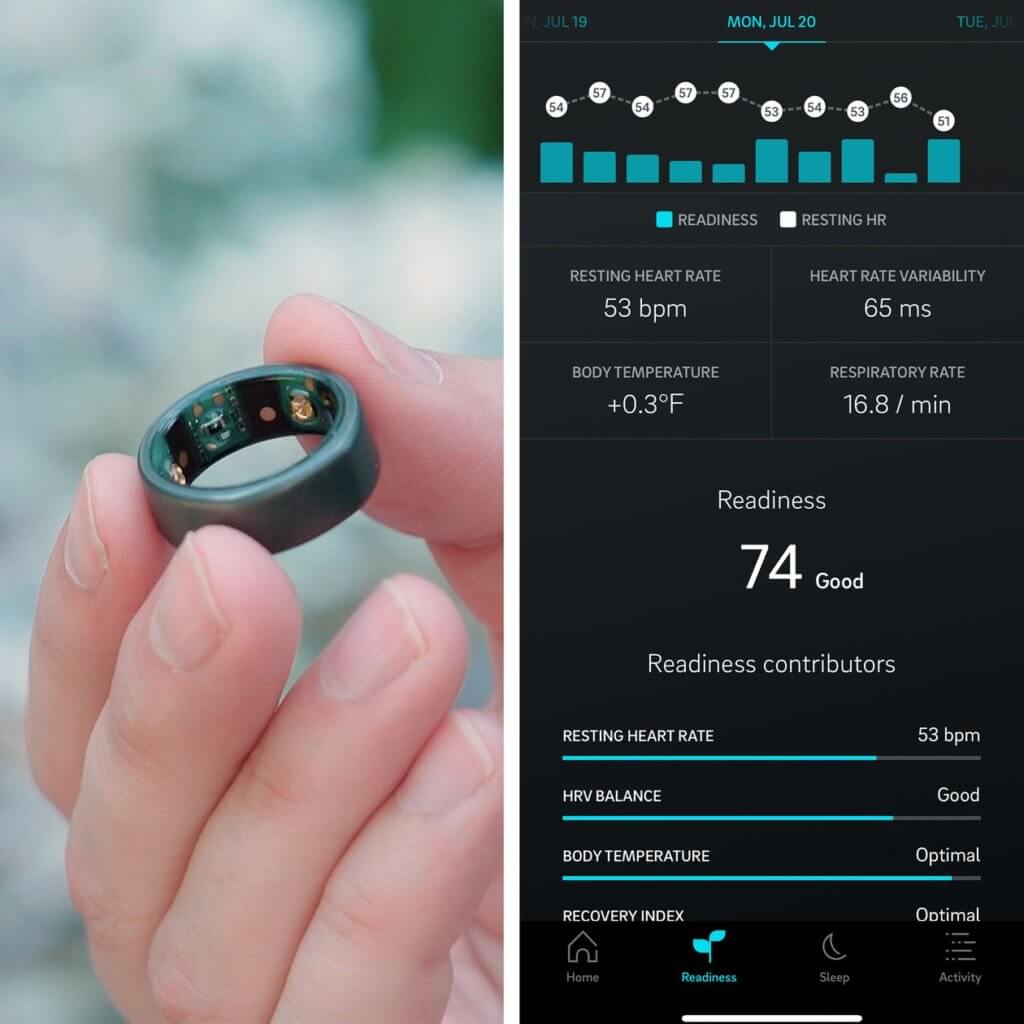For the past three weeks I’ve worn an Oura ring, Fitbit, Garmin fitness band and Apple Watch, along with two high-tech skin patches, all packed with sensors. They’ve sent hundreds of temperature readings, blood oxygen levels, heart beats—even cough counts—to my phone. All to find out if I have Covid-19. (I don’t. Confirmed with a real fun nasal-swab test.)
Tech companies and medical researchers are hard at work figuring out if wearable devices can spot Covid-19…. They take wearable sensor data from both healthy people and those afflicted by Covid, compare and look for patterns in the data, and then create artificial intelligence that could alert others whose own data patterns point to trouble.
Results from Fitbit’s Covid-19 study are already showing fluctuations in key metrics, such as heart rate and respiration, days before symptoms. Fitbit Inc. Chief Executive James Park told me the company, which Alphabet Inc.’s Google has agreed to buy, is working toward a system where flagged users could be instructed to quarantine and then, if symptoms appear, confirm with a test.
In a similar way, NBA players and staff are using the Oura ring in the “bubble” in Orlando, Fla., where they are now living and playing in isolation for their safety. If certain data points hit certain levels, authorized personnel can notify the wearers to get tested.
































